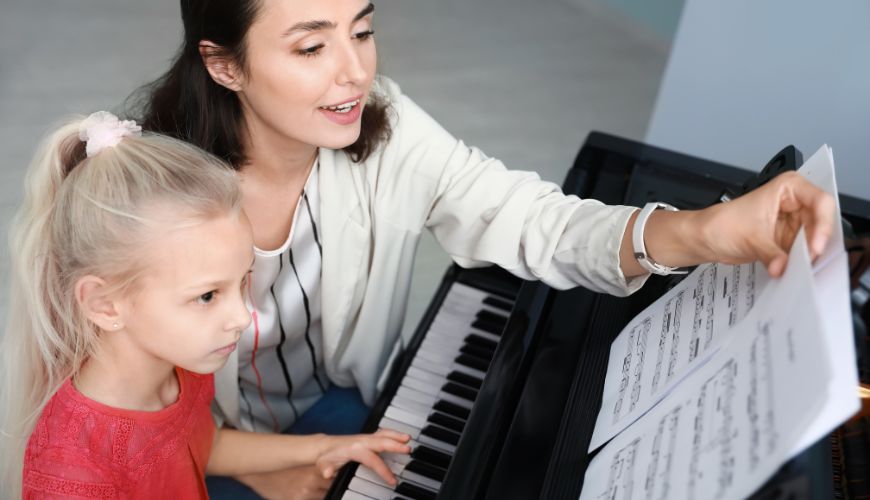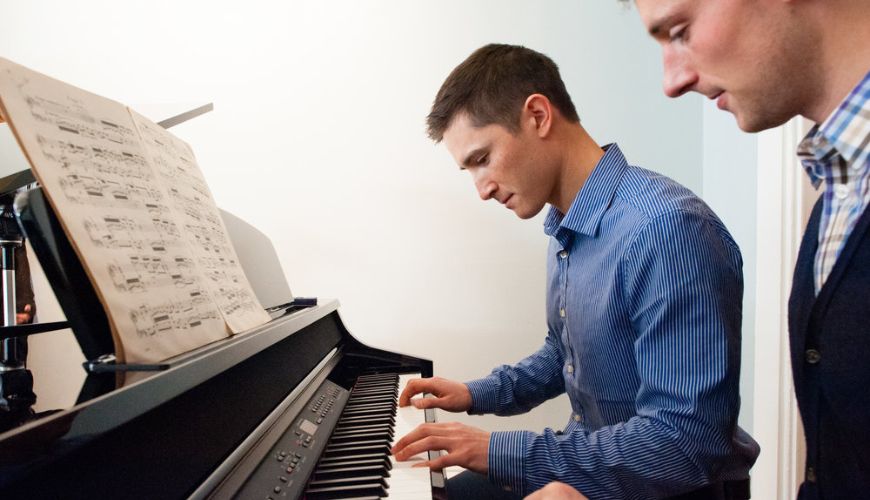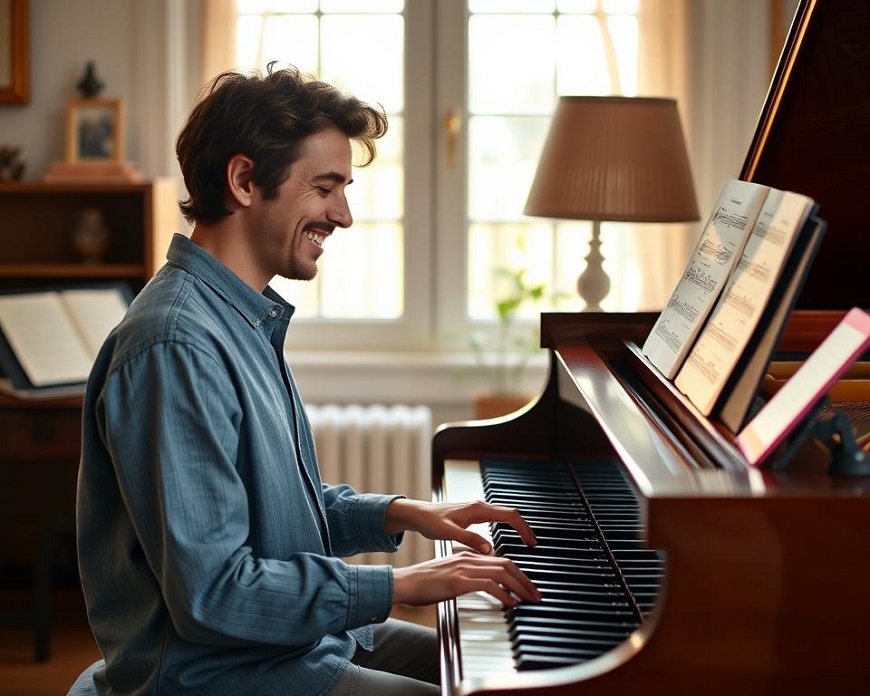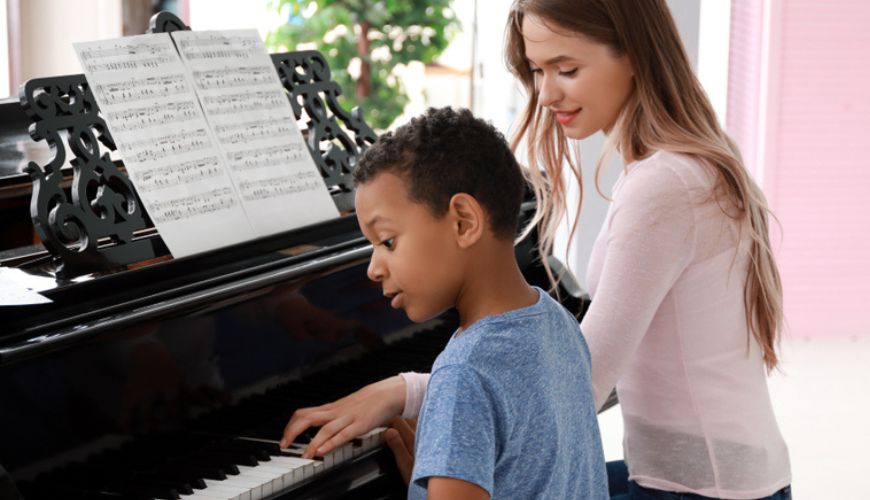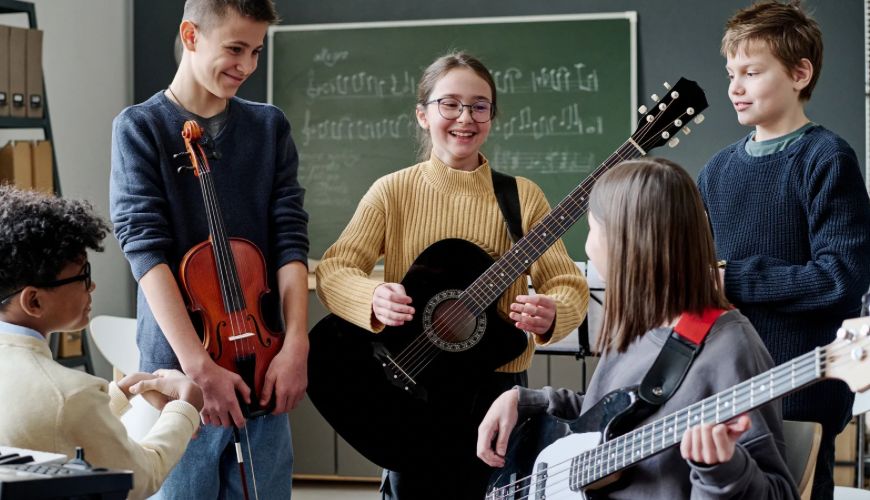Program selection is key. Look for music schools with a track record of success. Check their facilities, teacher qualifications, and student achievements. These factors can greatly impact your music education journey.
Teaching piano to adults and children requires different methods. Adults and children learn in unique ways. Adults use their life experience and motivation in music lessons, while children learn by building basic skills through fun activities.
Adults come to piano lessons with a lot of knowledge, which helps them understand complex music faster. They also have clear goals and a strong desire to learn. On the other hand, children are naturally curious and adaptable, making them great for learning music over time.
We adjust our teaching for adults and children. We make piano lessons for adults about practical skills and connecting new knowledge to what they already know. We use activities in piano lessons for kids to make learning enjoyable. This way, learning is fun and meaningful.
Key Takeaways
- Adults have longer musical histories, giving them an advantage in learning piano
- Adult learners grasp musical concepts faster due to life experience
- Children benefit from play-based learning and long-term skill development
- Personalized teaching approaches work best for music lessons for Adults.
- Regular praise and encouragement are crucial in music lessons for kids for their motivation.
Understanding the Differences in Learning Approaches
Learning piano is different for adults and children. We know this and teach both groups in the best way possible.


